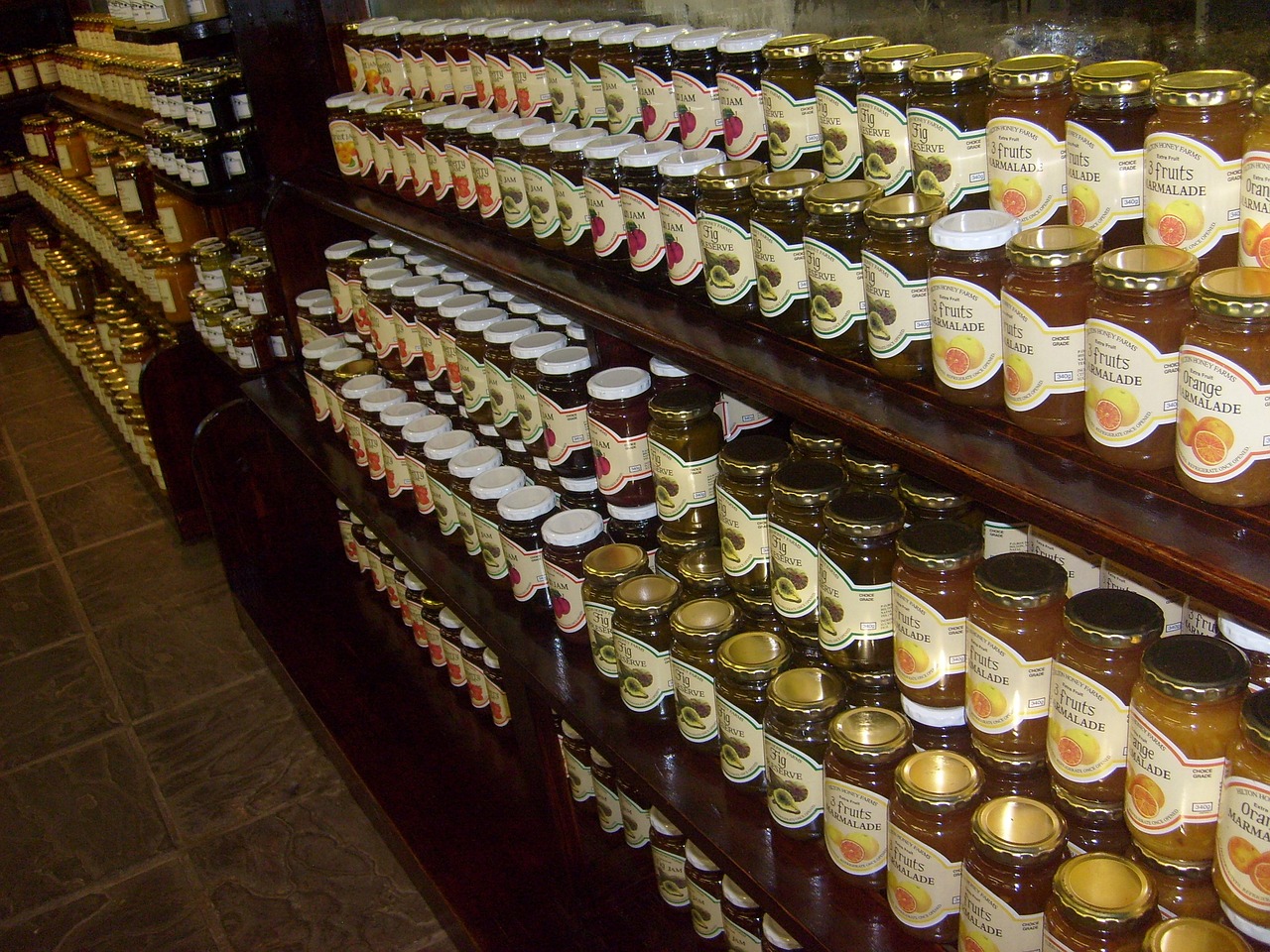Canned fruits have become an easy and inexpensive way to add fruits to our daily diet. Although they have their benefits, there are also some downsides to consider before incorporating them into our meals.
One of the advantages of canned fruits is their year-round availability, which makes it easier for us to add them to different recipes, from desserts to smoothies. They are also budget-friendly and save us time on prep work, as they come already peeled and cut. Moreover, canned fruits can be a great source of nutrients, especially Vitamin C and antioxidants that are important for our health.
However, canned fruits also come with some disadvantages that we need to keep in mind. One main downside is the added sugars and syrups that can significantly increase the calorie and sugar content. The process of canning can also decrease the nutritional value of the fruits, making them a less nutritious option compared to fresh ones. Furthermore, some canned goods may contain BPA, a chemical that has been linked to several health issues.
Another disadvantage of canned fruits is the use of processed flavors to compensate for the loss of natural flavors during processing, which may contain artificial flavors that could harm our health. Canning and transporting fruits also require a lot of energy and resources, which makes it less environmentally friendly compared to locally-sourced fresh produce. Additionally, some canned fruits may contain additives, such as artificial colors, flavorings, and preservatives, which can be harmful to our health in the long run.
In conclusion, canned fruits can be a convenient and inexpensive option to add fruits to our meals, but they also have their downsides that we need to be mindful of. We can opt for canned fruits with no added sugar or syrup, read labels carefully, and limit the consumption of canned fruits with processed flavors and additives to ensure that we are getting the most out of them. Lastly, incorporating fresh fruits into our daily diets can provide essential nutrients and reduce our environmental impact.
Pros
Canned fruits have several advantages that make them an appealing option for adding more fruit to your diet. Firstly, they are available year-round and can be utilized in numerous recipes, ranging from desserts to smoothies. Secondly, they are generally cheaper than fresh fruits and can save time on preparation since they are already peeled and sliced. What’s more, canned fruits can provide a good source of nutrients, with some products containing high levels of Vitamin C and antioxidants.
For those with busy schedules or limited access to fresh fruits, canned fruits are a practical alternative. However, it’s important to note that not all canned fruits are created equal. Some may contain added sugars or syrups that increase their calorie and sugar content. Therefore, it’s important to read labels carefully and choose options with no added sugars or syrups. By doing so, you can ensure that you’re getting the most out of your canned fruits and incorporating important nutrients into your diet.
- Pros of canned fruits:
- Availability year-round
- Versatility in recipes
- Cheaper than fresh fruits
- Time-saving on preparation
- Good source of nutrients
Cons
While canned fruits may provide the convenience of being readily available and having a longer shelf life, they come with some potential downsides. One of the main cons of canned fruits is the fact that they can contain added sugars and syrups, which can significantly increase the calorie and sugar content in the fruit. This can be problematic for those who are trying to limit their sugar intake or are watching their weight.
In addition, the canning process can cause some of the nutrients found in fresh fruits to degrade or even be lost completely. This can make canned fruits a less nutritious option compared to fresh fruits. It’s important to also note that some canned fruits may contain the potentially harmful chemical BPA, although many companies now offer BPA-free options.
To ensure you are getting the most out of your canned fruits, it’s important to read labels carefully and choose options without added sugars or syrups. Additionally, it’s a good idea to aim to incorporate fresh fruits into your diet when possible to ensure you are getting important nutrients and reducing your environmental impact.
Processed vs. Natural Flavors
When it comes to canned fruits, one potential downside is the use of processed flavors. During the canning process, some fruits may lose their natural flavor and companies may add artificial flavors to enhance taste. This means that some canned fruits may not be as healthy or nutritious as their fresh counterparts. It’s important to read labels carefully and understand exactly what you are putting into your body. Some canned fruits may have added sugars, syrups, or other additives that can be detrimental to your health. By choosing options with no added sugars or syrups, and reading labels closely to avoid processed flavors and other additives, you can ensure that you are getting the most out of your canned fruits. Additionally, opting for fresh fruits when possible can help provide important nutrients and reduce your environmental impact.
Less Environmentally Friendly
Canning and transporting fruits to create canned fruits has long been known to require significant amounts of energy and resources. While this is a convenient option for many who enjoy having fruits year-round, it’s not the most environmentally friendly option when compared to locally sourced, fresh produce. The process of canning itself requires a lot of energy and resources, which contributes to the carbon footprint of canned fruits. Additionally, transporting the cans to stores and consumers also requires more energy and resources compared to transporting fresh produce that is sourced locally.
Choosing to consume locally sourced, fresh produce can help reduce the environmental impact of your diet while also providing you with high-quality, nutritious foods. Another alternative for those who enjoy having fruits year-round is to freeze fresh fruits when they are in season and enjoy them throughout the year. This option also requires significantly less energy and resources compared to canning and transporting fruits, making it a more environmentally friendly option.
May Contain Additives
Canned fruits can sometimes contain additives such as artificial colors, flavorings, and preservatives. While these additives may enhance the taste or extend the shelf life of the product, they can potentially be harmful to human health. It’s important to read the labels carefully and understand what you’re consuming, especially if you have any allergies or sensitivities to certain ingredients.
Some canned fruit products may also contain high fructose corn syrup, which has been linked to obesity, diabetes, and other health problems. It’s best to choose canned fruits that are in their natural juice or water to avoid added sugars and syrups.
If you’re concerned about additives, you can opt for organic or natural canned fruit products that are free from synthetic ingredients. Some companies also offer BPA-free options, which can further reduce potential health risks.
Overall, canned fruits can be a convenient and affordable option, but it’s important to be aware of their potential downsides. By choosing products with no added sugars or syrups, reading labels carefully, and opting for fresh fruits when possible, you can still enjoy the benefits of fruit while minimizing any negative health impacts.
Can Be High in Sodium
Canned fruits that are packed in syrup have the potential to be very high in sodium, especially if they are not labeled as low-sodium. High sodium intake can be problematic for those with high blood pressure or heart disease, as it can increase the risk of heart attack and stroke. It’s important to limit sodium intake and choose fruits that are packed in water or natural juices instead.
If you do choose to consume canned fruits packed in syrup, be sure to drain and rinse them before eating to remove excess sodium. Additionally, reading labels carefully and choosing low-sodium options can help reduce your sodium intake and keep you healthy.
Conclusion
Overall, canned fruits can be a practical and cost-effective way to include more fruit in your diet, as they are widely available and can be used in various recipes. However, it is essential to be aware of the potential downsides, such as added sugars, degraded nutrients, and harmful additives.
To make the most out of canned fruits, it is crucial to select options without added sugars or syrups and carefully read the labels to understand the ingredients. Incorporating fresh fruits into your meals whenever possible can also increase your nutrient intake and contribute to reducing your environmental impact.


